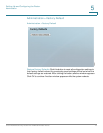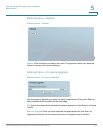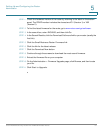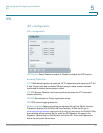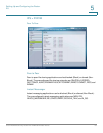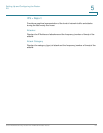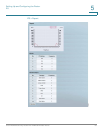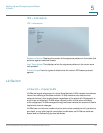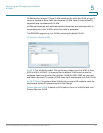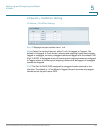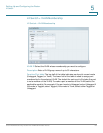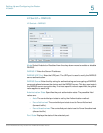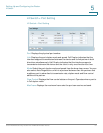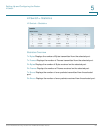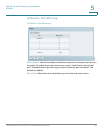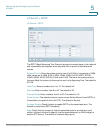
Setting Up and Configuring the Router
L2 Switch
Cisco RVS4000 Security Router with VPN Administrator Guide 87
5
VLANs function at layer 2. Since VLANs isolate traffic within the VLAN, a Layer 3
router is needed to allow traffic flow between VLANs. Layer 3 routers identify
segments and coordinate with VLANs.
VLANs are broadcast and multicast domains. Broadcast and multicast traffic is
transmitted only in the VLAN in which the traffic is generated.
The RVS4000 supports up to 4 VLANs, including the default VLAN.
L2 Switch > Create VLAN
VLAN ID The VLAN ID number. This can be any number from 2 to 3290, or from
3293 to 4094. (VLAN ID 1 is reserved for the default VLAN, which is used for
untagged frames received on the interface. VLAN IDs 3291-3292 are reserved
and cannot be used.) To create a VLAN, enter the ID number and click Add VLAN.
VLAN ID Range To create multiple VLANs with a range of ID numbers, enter the
starting and ending ID numbers and click Add Range.
Delete Selected VLAN To delete a VLAN, select it form the VLAN list and click
Delete Selected VLAN.



